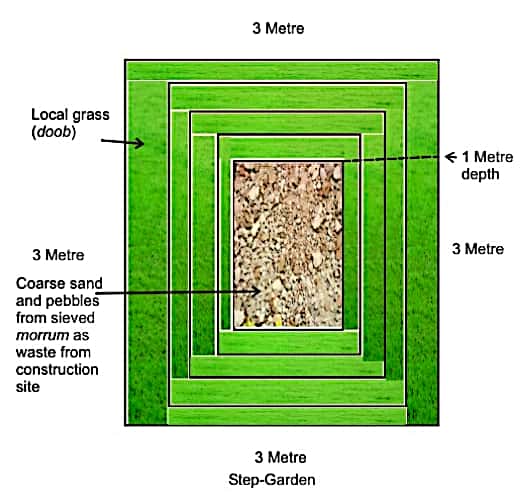Apr 13, 2025
Apr 13, 2025
‘Bahut diya denewale ne tujh ko,
Anchal hi na samaye to kya kije.
This saying in Hindi translates to’ God has given you so much, but you are unable to hold it.’ In respect of water problem this saying is coming to be true.
Every year the skies pour down so much of fresh water, nearly 90% of which is wasted as run-off. The humanity, till it saved water, had no problem of scarcity. But the greed of development damaged the vast green foliage of forests for high-rise concrete forests for humans – the so-called urbanization. This led to shrinking of surface land that absorbed rainwater to recharge groundwater and maintain its level. To add to water woes, individuals installed submersible as if the tap water supplied was not sufficient for them. Irresponsible, unscientific use of submersibles resulted in subsurface water level gradually going down, to the extent that many of the submersible became dry.
With a view to resolve this problem of water scarcity, especially in urban areas, we need to find innovative ways. In this direction a proposal is submitted below which is easy to adopt and implement.
Lucknow now has parks in every locality which are mostly maintained by Government authorities. If we create step-gardens of dimensions 3 metre length x 3 metre bredth and 1 metre depth in one part of park, with bottom 30cm filled with coarse sand and pebbles obtained as waste from sieved morrum used in construction before Rainy Season, it will help in percolation of rainwater into the underground. This small measure will help in rise in water table – may be slowly but surely.
 In Madhya Pradesh, when the wells got dried and there was no subsurface water available at all, the villagers dug up tank and collected rainwater regularly using it only as per requirement. This helped in rise of level of subsurface water and now they are having good crops.
In Madhya Pradesh, when the wells got dried and there was no subsurface water available at all, the villagers dug up tank and collected rainwater regularly using it only as per requirement. This helped in rise of level of subsurface water and now they are having good crops.
The measure suggested is similar to that adopted by villagers above but applicable in urban areas.
Small measures collectively contribute to significant change. Let’s cherish and conserve this life-giving resource!
12-May-2024
More by : Dr. Anil Mathur